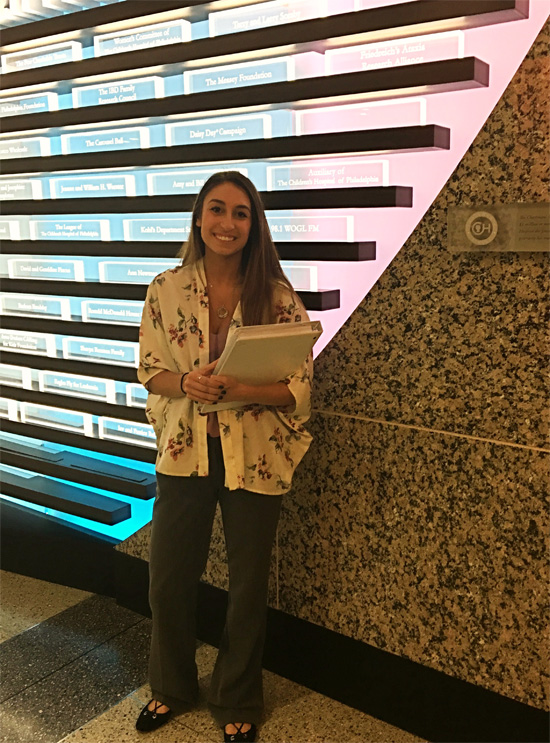
Hometown: Indianapolis, Indiana
Undergraduate: Indiana University
Student's next step: Indiana University School of Medicine – South Bend
Tell us a little about your background before you came to Drexel.
Before I came to Drexel I spent a majority of my youth in Indianapolis, Indiana. After high school I attended Indiana University. I loved my undergraduate institution, and was deeply involved in a number of activities. Some of my fondest memories revolved around being on the Indiana University women’s lacrosse team, for which I was a captain.
Why did you decide to enroll in a post-baccalaureate program? And why did you feel the Interdisciplinary Health Sciences (IHS) program was a good fit for you?
I knew that, based on my undergraduate performances, a post-baccalaureate program was necessary to further my education and improve my academic performance, as well as expand my knowledge base. Interestingly enough, during my interview and acceptance, I was offered the decision between two programs, and ultimately decided that the Interdisciplinary Health Sciences program was the best fit for me, due to the autonomy that it allowed in my schedule.
Do you currently participate in any extracurricular activities or volunteer work?
Currently I am a coordinator for the PALS program, which is a tutoring program where we assist the teachers at a local Philadelphia middle school. We focus on helping the students with their math and science lessons. I have done this since my first year; PALS is something I find very enjoyable, rewarding and entertaining. We work to provide mentorship for these young students in hope of developing a spark or interest in their future education. In addition to being a mentor for 7th and 8th graders, I also served as an IHS ambassador, where I was responsible for corresponding with accepted students and welcoming them to our school and program.
Tell us about your current laboratory research project.
Currently I am doing clinical research at the Children’s Hospital of Philadelphia (CHOP) in the Emergency Department. I am directly interacting with patients and their parents to enroll adolescents in a study to assess a risk of suicidality. This is a longitudinal study that will then be analyzed to improve our assessment of mental health disorders, suicidality and various risk factors that are most telling of a child at risk.
What influenced you to want to become a doctor?
My influence to become a doctor has always been my grandfather. He was a hematologist/oncologist in Philadelphia, and as a child I remember looking upon him and his works with such awe; he had always embraced the sharing of ideas and teaching. As the years passed, he fell ill and participated in what my family called his “farewell tour.” Per his wishes, he lived with each of his children one last time before his final goodbye. This was a unique experience that crystalized my desire to become a physician; on his good days he would describe the cellular details of his many conditions, and on the bad, I would see those effects taking place. I experienced medicine in a variety of ways through him and developed an appreciation and passion for health care. He instilled in me the belief that disease does not define a person, and in doing so he inspired me to find my place in medicine.
What has allowed you to achieve your current accomplishments?
My support system. I attribute a lot of my accomplishments to my family and the support they have given me. Pursuing a career in medicine has taken a lot of time and effort, whether it was working in a lab, preparing for the MCAT, or striving for success through my coursework. I would not have been able to succeed without the support of my family.
As one of our top students, what advice would you give to current and future IHS students?
Prioritize your responsibilities. There are so many resources given by the university and peers that at times it can become overwhelming. If you are a highly motivated individual, there is no doubt you will succeed in this program if you prioritize your coursework and MCAT. The HIS program has helped me so much, and not only improved my scientific knowledge but exposed me to the field of medicine as a whole. There are so many people willing to help you succeed here that it’s a disadvantage if you do not use them, whether it be Dr. Anita Gaurnier-Hausser and Matt Sanuck, or the professors teaching specific classes. I am so thankful for all the help that has been given to me, and my success is no doubt a testament to the strength of the Interdisciplinary Health Sciences program and Drexel as a whole.